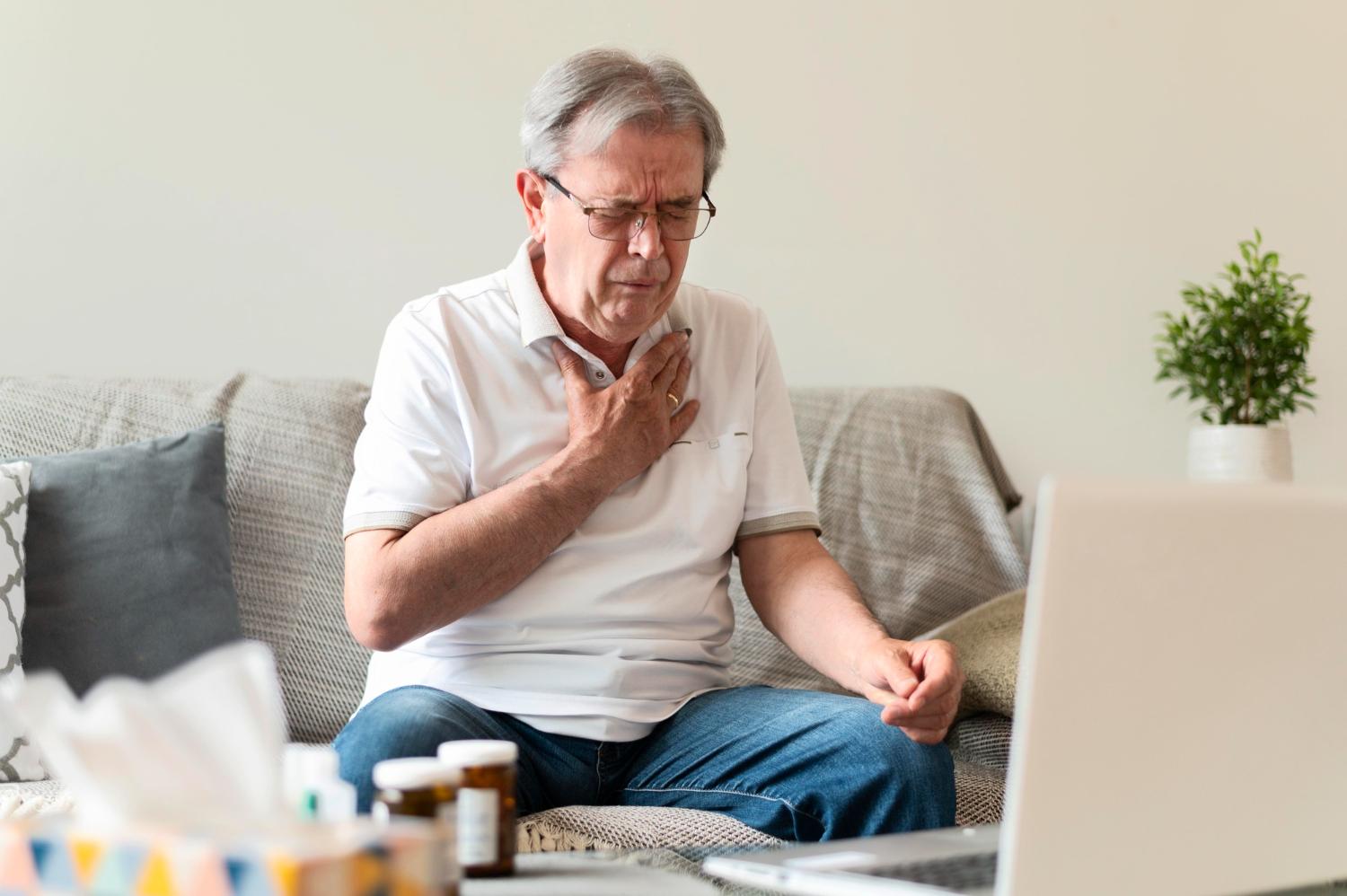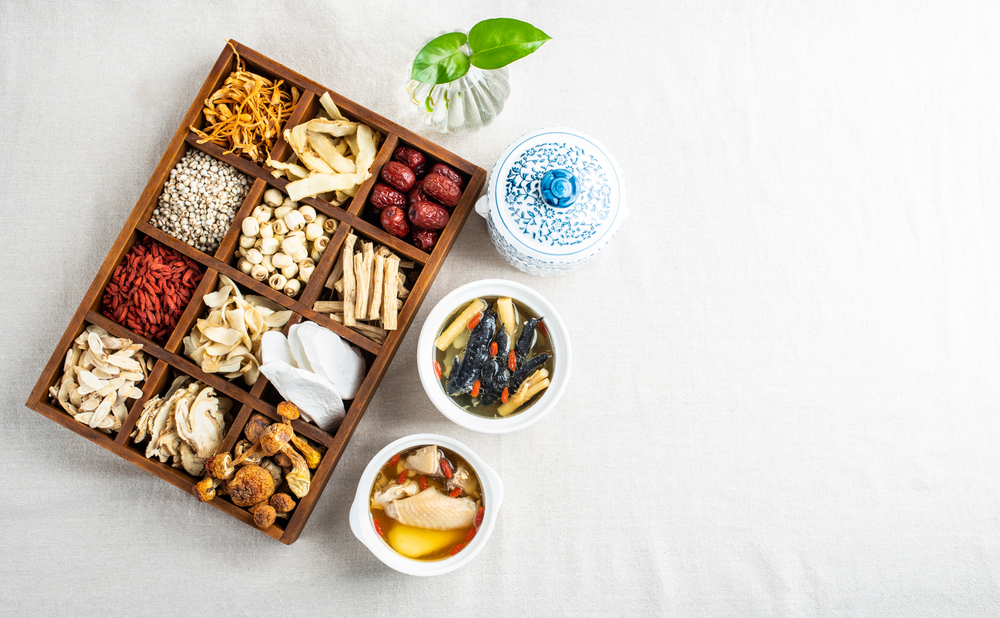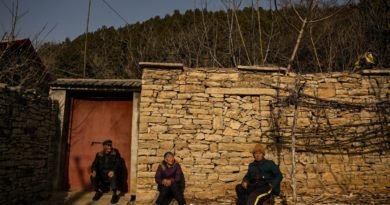An Ancient Therapy to Alleviate COVID-19 Complications and Asthma Symptoms
Are you experiencing persistent fatigue, shortness of breath, nausea, palpitations, or difficulty concentrating long after recovering from COVID-19? These symptoms could be signs of long COVID, or post-COVID syndrome. Long COVID can significantly impact a person’s quality of life, making it challenging for individuals with severe symptoms to perform daily tasks. In some cases, it may even pose life-threatening risks.
There are currently no cures for long COVID in Western medicine, but traditional Chinese medicine (TCM) can relieve the condition’s diverse range of symptoms. Mr. Li Chiu Yin, a registered TCM practitioner from Hong Kong, has shared successful cases and treatment methods for long-COVID symptoms on a YouTube program. Additionally, he provides some valuable tips on incorporating dietary adjustments and utilizing specific acupressure points that can effectively alleviate asthma symptoms.

Most people infected with COVID-19 experience symptom improvement within a few days or weeks after the initial onset and fully recover within 12 weeks. However, for some, symptoms may persist, sometimes lasting years. New symptoms may also arise, including chest and abdominal pain, joint and muscle aches, difficulty sleeping, headaches, problems with concentration, fatigue, depression, and anxiety.
The Link Between Long COVID and Sex, Age, and Constitution
According to Mr. Li, studies have shown that more women are affected by long COVID than men.
A study published in JAMA Network Open in 2022 analyzed data from over 16,000 adults in the United States who tested positive for COVID-19. The findings revealed that females and older adults are more susceptible to long COVID.
A study published in Health Affairs in March examining 800,000 COVID-19 patients (including over 200,000 with long COVID) came to the same conclusion. Additionally, “long haulers” exhibited more comorbidities, with obesity, hypertension, chronic lung disease, diabetes, and depression being the primary risk factors.
According to Mr. Li, females with long COVID primarily experience respiratory symptoms such as nasal congestion and sore throat. Some may also experience insomnia, hair loss, and depression. On the other hand, males tend to exhibit symptoms associated with endocrine and kidney diseases, such as the development of nephritis or diabetes following COVID-19 infection.
Additionally, Mr. Li pointed out that, according to the theory of constitutions in TCM, individuals with a particular diathesis body constitution are more prone to experience severe COVID-19 symptoms. In modern medical terms, this can be understood as a body type more susceptible to allergies, such as pollen allergies or asthma. People with this type of constitution are more likely to develop long COVID with severe symptoms, and their illness may last longer.
Treatment of Long COVID With TCM
Mr. Li shared a successful case of treating long COVID with TCM. The patient, a woman in her 30s, tested negative about six to seven days after a positive diagnosis. So she decided to return to work.
Her symptoms during the infection included excessive phlegm, cough, and sore throat. By the time she tested negative, these symptoms had already resolved. However, a few days after returning to work, she experienced hoarseness and loss of voice due to the vocal demands of her job.
It is not uncommon for patients to experience different symptoms after testing negative for COVID-19 compared to their initial infection, however confusing this may seem.
Mr. Li said many individuals are currently dealing with post-COVID-19 conditions. In TCM, patients are advised to get sufficient rest when the condition transitions to a new stage. However, in this particular case, the patient continued to strain her vocal cords despite a deficiency in lung qi, preventing the throat’s airway from healing entirely and eventually resulting in hoarseness. Additionally, the patient experienced dryness in her mouth and night sweats, considered signs of lung yin deficiency in traditional Chinese medicine.
According to the fundamental theory of yin-yang in TCM, all aspects of the natural world exhibit corresponding yin and yang characteristics. These opposing characteristics manifest in various ways, such as the opposition of earth and sky and cold and hot. Yin and yang energies are opposing yet interdependent, and the balance between them is essential. When yin and yang are balanced, individuals enjoy good health, vitality, harmony, and stability. However, when such balance is disrupted, various health issues can arise.
In this case, Mr. Li administered a lung- and yin-nourishing and throat-soothing formula. After approximately three to five doses, the patient experienced significant improvement. Mr. Li emphasized that when herbal medicine is utilized appropriately, taking into account the patient’s specific needs, it can yield prompt and effective results.

Alleviating Long-COVID Symptoms With Dietary Therapy
Mr. Li emphasized the importance of tailoring one’s diet to specific needs, similar to how treatment is personalized.
Using the case of yin deficiency as an example, he explained that yu zhu and bai he are Chinese medicinal ingredients commonly used in soups to alleviate symptoms of nighttime cough or dry mouth. For individuals experiencing mild shortness of breath or asthma, chen pi and xing ren can tonify and regulate organ function.
He further explained that in TCM, there is a belief in the concept of food and medicinal herbs sharing the same origin. It is believed that many foods possess therapeutic effects to varying degrees, similar to medicinal herbs, with the dosage being the main difference. In diet therapy, the dosage is relatively smaller but still significantly promotes overall health. For instance, when individuals experience mild symptoms that do not require medical attention, they can incorporate various soup recipes or medicinal ingredients for self-nourishment, thereby alleviating the symptoms.
Alleviating Asthma Symptoms With Acupoint Massage
Mr. Li stated that pressing on a specific acupoint, known as the Dingchuan acupoint, effectively alleviates asthma symptoms.
According to TCM, meridians are the channels through which energy flows in the human body. They are responsible for transporting qi and blood throughout the body. Qi and blood are the fundamental substances that constitute and sustain human life. The body consists of 12 major meridians, each corresponding to a specific organ. The internal organs are connected to the body’s surface through these meridians. Along the meridians are specific points known as acupoints. By stimulating the corresponding acupoints through techniques like acupuncture and massage, it is possible to treat diseases related to specific organs.
Mr. Li explained that TCM has a category of acupoints known as “extraordinary points.” These acupoints are not situated along the 12 main meridians but are believed to have exceptional efficacy in treating specific diseases.
The Dingchuan acupoint is one of these extraordinary points. According to Mr. Li, it is about half a thumb’s width away from the spinous process of the seventh cervical vertebra (the most prominent bone in the back of the neck when looking down). When massaging and stimulating the Dingchuan acupoint, one should experience a slightly sore sensation.
Mr. Li mentioned that individuals with cold-induced asthma, characterized by more frequent attacks during winter or lasting for a prolonged period, and those with white foamy phlegm can benefit from applying moxibustion with mugwort sticks on the Dingchuan acupoint. Another option is to apply a hot compress to the Dingchuan acupoint, but caution should be taken to avoid burns.
Mr. Li also emphasized that individuals with asthma symptoms should avoid exposure to cold air around the neck and throat.
*Note: Some herbs mentioned in this article may be unfamiliar, but they are generally available in health food and Asian grocery stores. It is important to note that treatment methods may vary depending on the individual. Please consult with a health care professional for a specific treatment plan.
Views expressed in this article are the opinions of the author and do not necessarily reflect the views of The Epoch Times. Epoch Health welcomes professional discussion and friendly debate. To submit an opinion piece, please follow these guidelines and submit through our form here.
What topics would you like to read about? Please let us know at health@epochtimes.nyc




